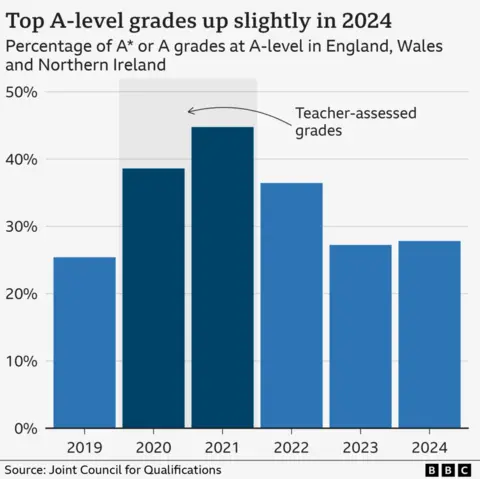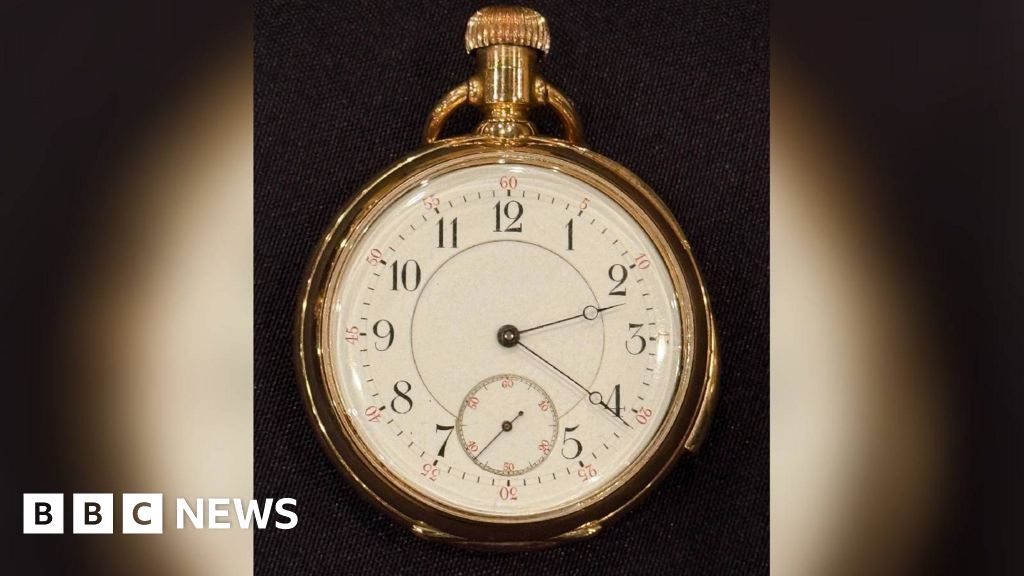
 Getty Images
Getty Images
Students in England, Wales and Northern Ireland will receive A-level, T-level and BTec National results on Thursday morning.
The amount of students getting top A-level results is expected to be broadly similar to 2024, after years of flux as a result of the Covid pandemic.
A record number of 18-year-olds will get into their first choice of university, the head of the Universities and Colleges Admissions Service (Ucas) has predicted.
Dr Jo Saxton stressed that this year's Year 13s had received lower GCSE grades than previous cohorts as part of a plan to push down grade inflation that happened during Covid, and they would need universities to take that into account.
Freya, a student at Middlesbrough College, will be getting her grade for a T-level in health.
"It gives you a hands-on experience in what sort of things you're going to do in a real-world scenario, rather than just learning from a book," she said.
She is about to start a full-time job in an NHS maternity department, and hopes to ultimately become a midwife.
"I thought coming here [and] doing this course would give me the theoretical and physical knowledge to be able to achieve what I want to do," she added.

 BBC/ Kate McGough
BBC/ Kate McGough
Dr Saxton also said Year 13 students would need universities to "respect and understand" the specific circumstances they have gone through.
They were in Year 8 and Year 9 during national lockdowns in 2020 and 2021.
Both years saw spikes in pass rates at GCSE and top grades at A-level, after exams were cancelled and results were based on teachers' assessments.
What followed was a phased effort to bring grades back in line with pre-pandemic levels.
The year that these students sat their GCSEs, 2023, was the final stage of that process in England. Grading returned to pre-pandemic standards in Wales and Northern Ireland last year.
It meant GCSE passes fell, with the steepest drop in England.


Dr Saxton said the "significant national programme to deflate their grades" at GCSE represented an "important backdrop" for those getting the grades for their Level 3 qualifications this week.
She also pointed out that, with GCSE grades down in 2023, fewer achieved the results they needed to start A-levels.
A-level entries fell from 825,355 last summer to 821,875 this summer, according to provisional data for England.
Dr Saxton said that students' previous grades would therefore "probably" be "fractionally higher" across the cohort.
Last year, with grading back to pre-pandemic standards across all three nations, 27.8% of all A-level grades were marked at A* or A - up from 27.2% in 2023 and 25.4% in 2019.
There is likely to be less emphasis this year on how grades compare to 2019 and more on how they compare to last year, since it is the second year that grading has returned to pre-pandemic levels across the board.
Students heading to university will pay higher fees in England and Wales this year. They have risen to £9,535 for undergraduate courses.
Maintenance loans have also gone up, meaning that students can borrow more to help with their living costs.

 3 months ago
71
3 months ago
71

















































